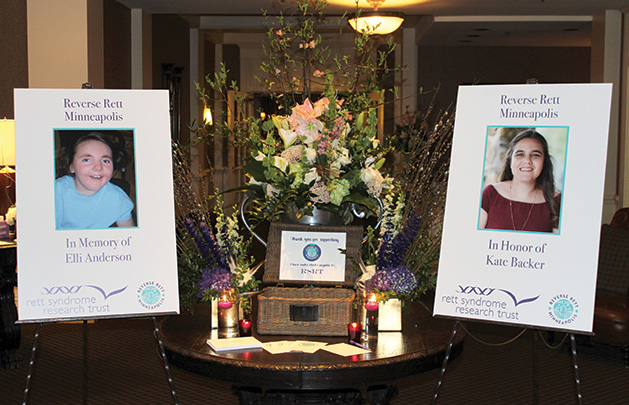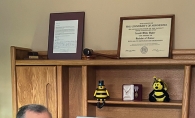
You may not have heard of Rett Syndrome. It’s a rare genetic mutation affecting brain development in girls. But, like many rare and terrible things, if your family has been impacted by it … it takes center stage in your world.
Rebecca Remick’s oldest sister Sara lived for 26 years with Rett Syndrome and Remick is doing what she can do to help find a cure for the condition, so that no other little girl must spend her life fighting that battle. Remick, co-founder and co-owner of City Homes, is also an organizer of an event to raise money and awareness called Reverse Rett Minneapolis.
This is the second year that Remick has spearheaded a fundraiser at the Edina Country Club as part of the national Reverse Rett campaign. The organization raises money for the Rett syndrome research trust.
The highlight of this year’s festivities is a “she shed” that City Homes is donating. Some lucky winner will go home with the true hot ticket item—City Homes will build you your very own “she shed” … think man cave, but better decorated and in the garden.
Girls with Rett Syndrome begin to show symptoms early… around a year or 18 months old. What often seems like a delay in development when first noticed, becomes a set of impairments that only gets worse as the young girl grows.
“My parents noticed early that something was wrong with Sara,” Remick says. “She wasn’t hitting normal pediatric milestone markers and was struggling to progress.” Remick says that Sara’s problems grew worse as she grew. “Like most Rett girls, Sara never talked.”
Living with Sara and watching how difficult simple things were for her, made Remick appreciate the health that most of us take for granted. Sara struggled to climb stairs, her hand movements became increasingly erratic and involuntary as she got older and she was in constant pain. But she was still a big sister and loved her family.
“I struggled in middle school. I didn’t have many friends and Sara and I went to the same school,” Remick says. “Sara was walking past my classroom with her aide one day and saw me. She came into the room while the teacher was talking, walked past all the other kids, knelt down and put her face against mine and tried to give me a kiss. I will never forget that. She was dealing with so much and yet she wanted to make sure I was okay and make sure I knew that someone loved me.”
The research into Rett Syndrome may have broader implications for a whole host of neurological impairment conditions. Current research seems to be leading scientists in the direction of treatments that may be applicable to conditions like Huntington’s disease, autism and dementia. So Remick thinks it’s even more important than ever to support the research with funding.
“In 2017 Reverse Rett Research Trust implemented ‘roadmap to a cure,’” she says. “It’s a three-year $33 million transformational research plan. They are aiming to make Rett syndrome the first curable neurological disorder and they have a solid plan to get there.”
Reverse Rett Minneapolis will take place at the Edina Country Club on April 4th. The gala is informal. Tickets are $75. There are several levels of sponsorship and donations are welcome. If you attend the event maybe you’ll win the she shed!! You’ll definitely help fund research that may find a cure for this condition.
Reverse Rett Minneapolis
Facebook: Rett Syndrome Research Trust
Pinterest: Rett Syndrome Research Trust
Twitter: @RSRT









